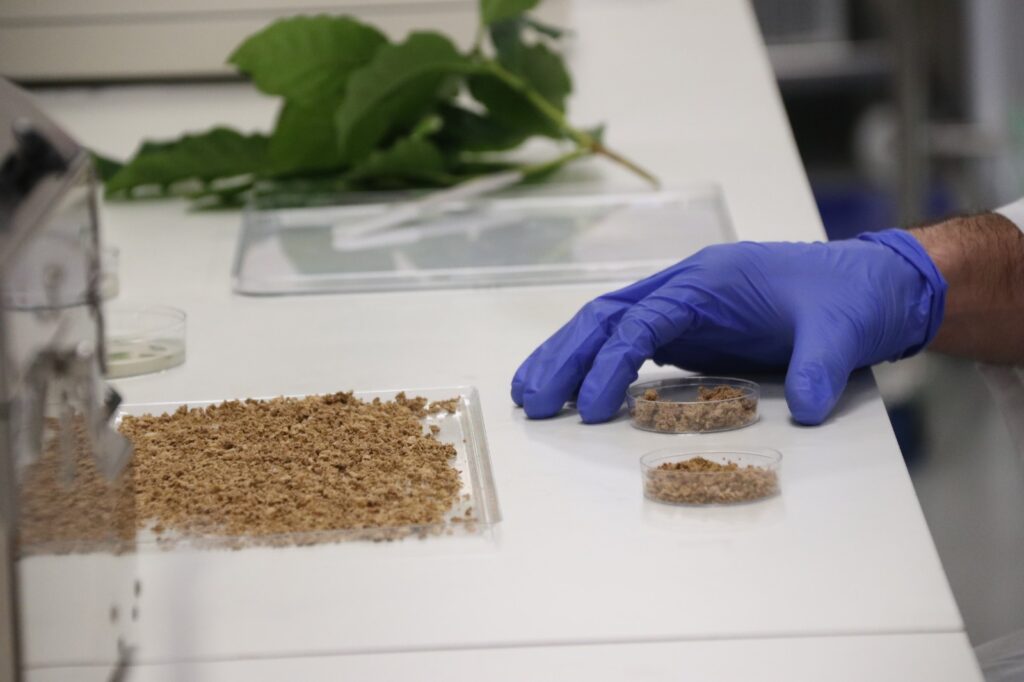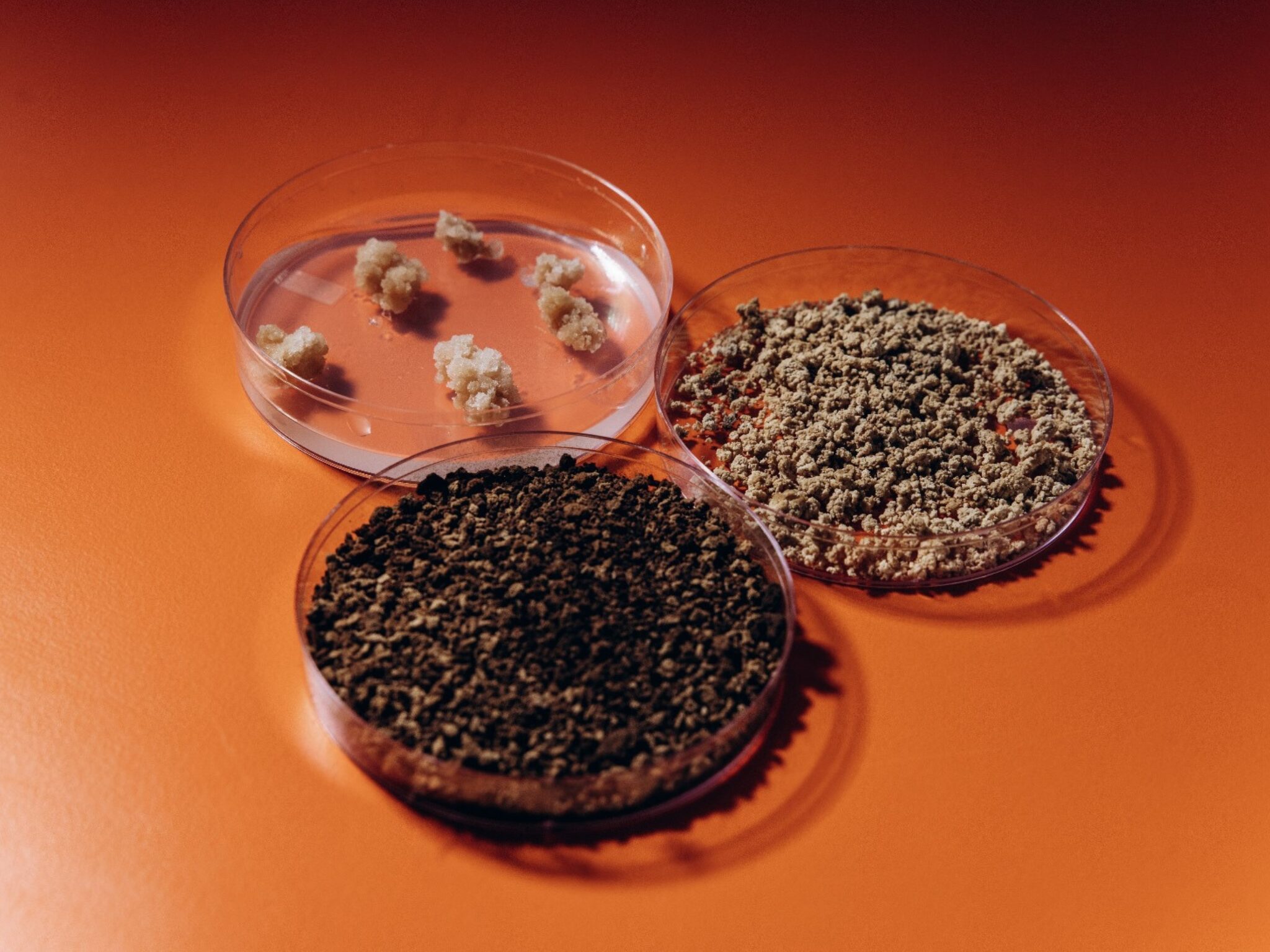Israeli Startup Pluri Launches Cell-Based Coffee Business with Industrial Production Capacity
5 Mins Read
Israeli cellular agriculture firm Pluri has launched a cell-based coffee business, which will be spun out into a new subsidiary focused on industrial-scale production to combat the crop’s climate challenges.
As arable land shrinks by half, six in 10 species face the threat of extinction, and yields decline while prices rise, coffee is in a climate change conundrum.
Conversely, climate change is in a coffee conundrum, given the crop is linked to widespread deforestation, massive amounts of GHG emissions, and high carbon opportunity costs.
Simply put, our morning cup is in danger of vanishing, and not because you’ve drunk it – but more so because there won’t be enough to drink in the first place. Solutions are necessary, especially since we’ll be demanding three times more coffee by mid-century.
For many startups, that means coming up with alternatives made from different ingredients, in the hope of replicating the sensory profile of coffee. Think of it the way you’d think of plant-based meats. Companies like Northern Wonder (Netherlands), Voyage Foods, Atomo and Minus (all US) are all taking this ‘beanless coffee‘ approach, innovating with ingredients like lupin beans, chickpeas, carob, grape seeds, chicory, and date seeds, to name a few.
Then there are others like French startup Amatera, which makes use of molecular biology and crop genetics technology to make perennial coffee. Finally, the third crop of players in this space are delving deep into cellular agriculture, such as Parisian firm Stem and the VTT Research Centre of Finland. This is akin to how companies are making cultivated meat to replace conventionally produced, bad-for-the-climate meat.

One of those companies is Pluri, a biotech startup from Israel, which has previously established Ever After Foods, a joint venture with the country’s largest food producer, Tnuva, to produce a bioreactor platform to scale cell-cultured meat in a cost-effective manner. Now, Pluri is taking its tech and applying it to a drink that is consumed two billion times every day, all over the world.
How Pluri makes cell-based coffee
Pluri has launched its cell-based coffee business to “revolutionise” the $132B industry, with a product it says is designed to address the growing demand for high-quality coffee, produced on an industrial scale. The venture has been created under the company’s new business vertical, PluriAgtech, which uses breakthrough cell tech to create eco-friendly alternatives to carbon-intensive foods.
The biotech startup extracts cells from the coffee plant. “We need one biopsy from the plant and then we create a cell bank of coffee cells,” a Pluri spokesperson told Green Queen. This is followed by a process that expands the cells significantly through a 3D bioreactor. “Afterwards, we harvest the cells, dry them and roast them like any other coffee. The final product looks like coffee grains.”
That patented 3D cell expansion tech can expand a single cell into billions of distinct cells. “Our 3D bioreactors grow cells quickly and reliably, in a highly cost-effective process that can be applied to various types of cells,” the company explained. “By using a bioreactor, we don’t need the whole coffee plant for this process – the leaves of the plant are enough.”
The spokesperson adds: “Our proprietary system provides a 3D micro-environment for cells that can mimic various cell growth environments. Our cells expand rapidly and remain viable as we transform them into innovative products and solutions. This system generates cell products on a massive scale with batch-to-batch consistency.”
This helps accelerate the path to commercial viability. “The PluriMatrix we have can produce [an] amount of product that is equivalent to [a] dozen coffee plants,” the spokesperson revealed, confirming that no other ingredients are going into the final product, which is a cell-based version of arabica, one of the two main species of coffee consumed globally (the other being robusta), which could go extinct by 2050.
Plans for a subsidiary and regulatory approval
Pluri plans to spin out its cell-based coffee project as a subsidiary focused on a B2B model developing innovative products, technologies and IP for the industry. “We are uniquely positioned to transform the coffee industry with our sustainable cell-based coffee,” said Michal Ogolnik, who will helm the subsidiary.
“By harnessing the power of Pluri’s cutting-edge technology, we could create a brighter, more sustainable future for our planet. By bringing innovation to the forefront, we can tackle some of the coffee industry’s most pressing challenges,” she added.
Since its lab-grown coffee eschews the need for traditional fields, Pluri argues it eliminates the negative environmental impact of conventional coffee crops. Its innovation is estimated to use 98% less water and 95% less land, while also lowering the emission of hazardous greenhouse gases. And as for the cost question, the company’s spokesperson said its tech allows its products to be created in a cost-effective manner: “Our product will show cost parity and will ensure stability of coffee prices in a competitive pricing.”

But before all that, Pluri needs to pass one key hurdle: regulatory approval. “We have defined the regulatory pathway towards commercialisation,” the spokesperson confirmed. “This product is targeted to be under the FDA GRAS [Generally Recognized as Safe] pathway.” So far, Upside Foods and Eat Just are the only cultivated food companies to have received a ‘no questions’ letter from the authority, gaining clearance to sell their cultured chicken products last year.
Pluri will reveal its market launch timeline later this year, but its self-funded coffee initiative is open to investment soon. But whether consumers will take to its products remains to be seen: a 2019 poll by Dalhousie University revealed that 72% of Canadians wouldn’t drink lab-grown coffee, so there’s room for growing consumer awareness and acceptance around the innovation.
“We believe deeply in the power of cell technology to make farming and food cultivation more productive and sustainable,” said Pluri CEO Yaky Yanay. “Pluri’s advanced agtech solutions potentially reduce the environmental footprint of traditional agricultural production. PluriAgtech can deliver numerous solutions ranging from products like cell-based coffee to bioactive in order to address the biggest challenges in agriculture.”




